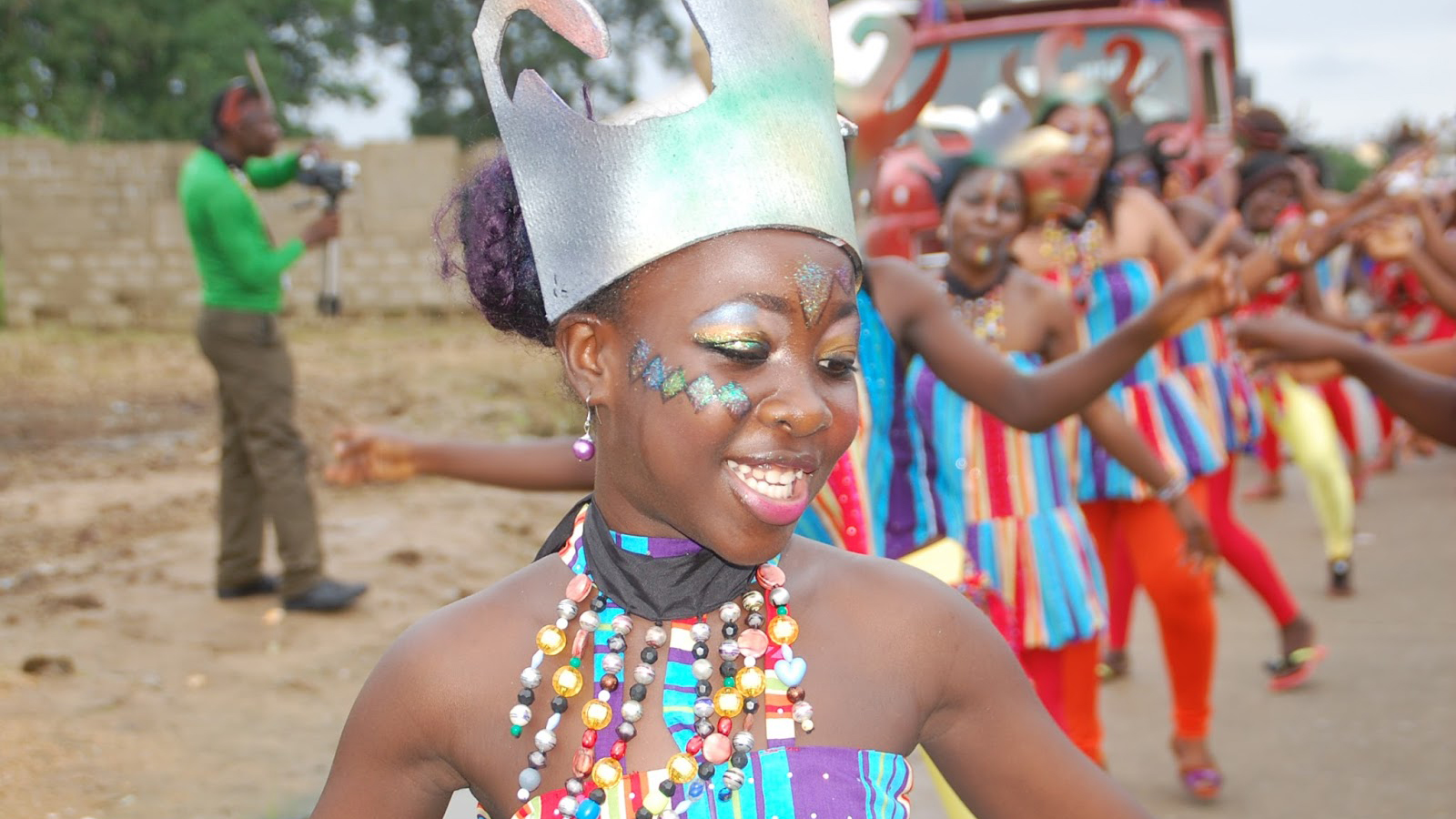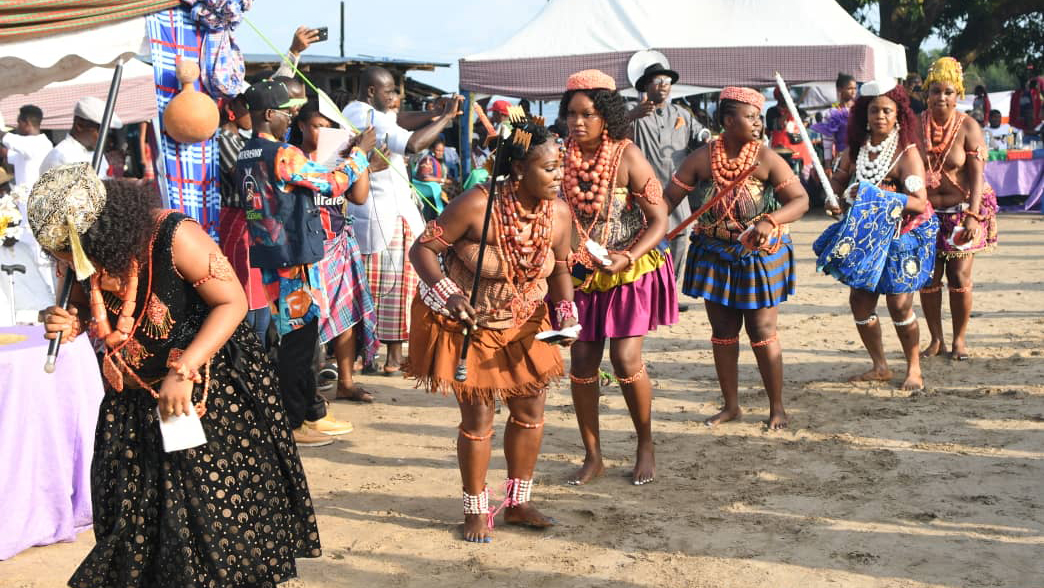
Born and raised in Lagos, Nigeria. Toye Aru is a multi-talented audio-visual artist and budding African filmmaker. He studied Media Practice at the University of Sussex in England, where he shot his first short film, Unexpected Visitors. He returned home to work in several production companies and served as part of the production team who produced the Netflix documentary, Awon Boyz. He directed the Big Brother Nigeria, Pepper Dem, reality show season promos and has also served as a cinematographer for commercials and corporate documentaries. He speaks on a groundswell of issues, including the Africa International Film Festival (AFRIFF), which begins today.
Background
I’m Toye Aru, a filmmaker and record producer with nearly a decade of hands-on experience in the realm of broadcast media. Throughout my journey, I’ve had the privilege of creating a diverse range of content, including commercials, films, and music, both for clients and my own personal projects.
My fascination with the art of storytelling and the nuances of visual expression led me to delve deeply into the technical aspects of these crafts. During my studies in Media Practice at the University of Sussex, I discovered a profound passion for cinematography and its pivotal role in conveying ideas, emotions, and powerful messages. It was there I realised the extraordinary potential of visual storytelling and the immense impact it can have on an audience.
The master’s degree in Cinematography from the California Campus of the prestigious New York Film Academy, sealed it off for me with its location right in the heart of Hollywood and the tremendous influence of my two year stay.
Did you have any influence choosing or deciding your career path?
My grandfather, Adegboyega Arulogun, was a distinguished figure in the world of media, having served as a former NTA General Manager and a renowned documentary film producer. Additionally, my father is in the same media profession being a television presenter and producer, running an ad agency and radio until lately radio stations.
However, when I made the choice to embark on a career in media, it wasn’t a decision influenced by family legacy or something I had consciously contemplated. It seems as though this path was simply meant for me, an innate calling that I couldn’t ignore. Maybe it is in the genes though as my younger brother is in the same business too. But no pressure from anywhere to be in the media business.
Your resume and online profile also show you play in the music space, how do you combine both?
The beauty of it all is that music and visuals are intricately connected. Each relies on the other, forming a harmonious partnership. While they exist as separate industries, their synergy is undeniable. I’ve chosen to combine both because there’s a perpetual demand for their mutual enhancement, and the fusion of expertise in both spheres is a valuable asset in this creative journey.
Why did you come back home in this season of ‘Japa’ after your master’s degree programme in cinematography at the New York Film Academy?
I decided to return because the stories I aspire to tell are rooted in African narratives, and I firmly believe that authenticity is at its peak when these stories are crafted at their origin. Staying abroad wouldn’t suffice to fulfill my passion for sharing the specific stories I’m driven to tell.
How has the experience been after returning to Nigeria? Any major cultural or professional shocks?
My return has been quite a challenging journey, but I was well-prepared for it. One of the significant hurdles I’ve encountered is the lack of professionalism in the way things are conducted here. After learning how to operate in a structured and professional manner, I’ve found that some of those practices are not applicable in this environment owing to their unique challenges. This, in turn, has a noticeable impact on the quality of our production. What’s even more frustrating is that many seem to accept and be content with this situation.
What are the major challenges budding film producers/directors like you face in today’s Nigeria
One of the primary hurdles we face is securing the necessary funding to bring our projects to life. While there has been some improvement in this regard over the years, it’s undeniable that having adequate capital is crucial for delivering high-quality projects. Additionally, introducing innovative and fresh ideas can be another significant challenge. The industry often leans on established formulas that have proven to work, making it a daunting task to persuade stakeholders to embrace new and creative concepts, as they perceive them as risky endeavours.
So tell us about your short film, Gita Boy, which has just been nominated in the short film category of this year’s AFRIFF
Gita Boy is a short drama that unfolds in the 1970s, centring on the pivotal decision faced by a carpenter’s son. He must choose between following in his family’s footsteps or embarking on a journey into the enigmatic world of music, guided by a stranger. This compelling narrative seeks to encapsulate a transformative moment in Oba’s young life.
At the heart of the film lies the vibrant rise of juju music during that era, with a focus on its prominence through Ayinde and the local champion band, the genre’s main luminaries. It also delves into the discovery of this captivating music by a young Oba. Through the vivid tapestry of Yoruba culture, Gita BOY showcases the essence of music, style, fashion, and art, weaving together a rich narrative that resonates with the spirit of the time.
Your expectations at AFRIFF
Winning would be awesome, but I am really looking forward to enjoying the whole festival experience.
Which other projects are you currently working on?
I’m currently engaged in a pop music project, also, I’m working on script development with the aim of bringing them to production next year.
Where do you see Nigeria’s creative industry in the next five years, especially with AI?
The Nigerian creative industry is poised for rapid growth in the coming five years, and I firmly believe that AI will play a pivotal role in facilitating this expansion. With AI, we can anticipate a significant enhancement in storytelling quality and overall production standards. The potential for innovation and progress is limitless, and it appears we are on a trajectory toward greatness.






